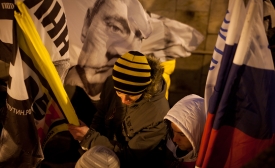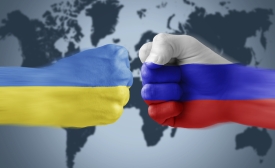crimea
Ministers from European Union countries decided last week to work strategically to counter Russian’s propaganda offensive in Ukraine and other former Soviet states. EU countries intend to collaborate on broadcasting to give citizens in the target countries, e.g. the Baltics, an alternative to the relentless bombardment of Russian media, which produces a highly distorted version of the news aimed at Russian speakers.
After decades as a career diplomat, Ambassador Y.J. Choi of South Korea wanted to find the root of the difference between Eastern and Western societies.

Michael Ardaiolo takes stock of the current state of public diplomacy.
Despite the widespread adoption of digital diplomacy, few studies have investigated how governments use SNS in order to frame foreign countries and themselves. Self-framing is practiced by countries as part of nation branding activities.
Manor & Segev's study on self-framing by Russia, Iran and the U.S. in Social Networking Sites
Although the Sochi Games were by many measures a success, any global afterglow quickly dimmed a few weeks later when Russia annexed more Black Sea property: the Crimea in neighboring Ukraine.
Russian President Vladimir Putin's annexation of Crimea has found supporters in an unlikely country: Last Sunday, an opinion poll in Germany found that nearly 40 percent of the country's population accept the move.

Prof. Erik Nisbet from the Ohio State University discussed how the messaging contest between Russian and Western media over the conflict in Crimea influenced Russian audiences.







